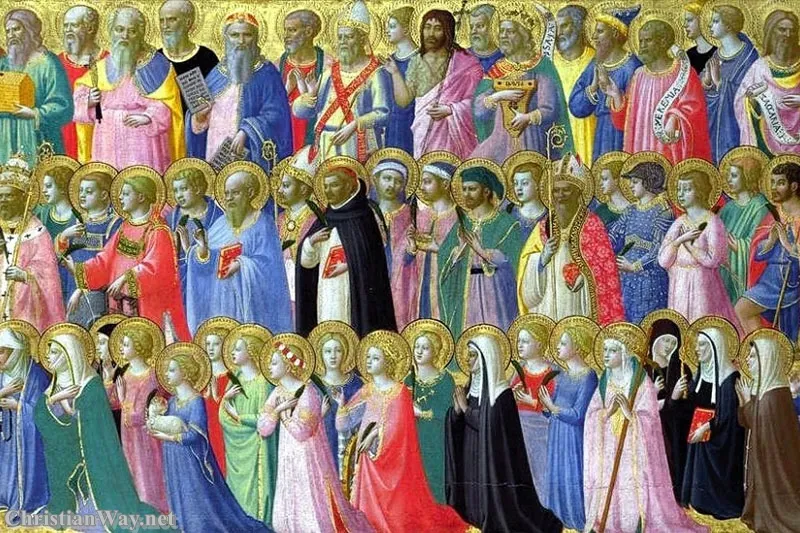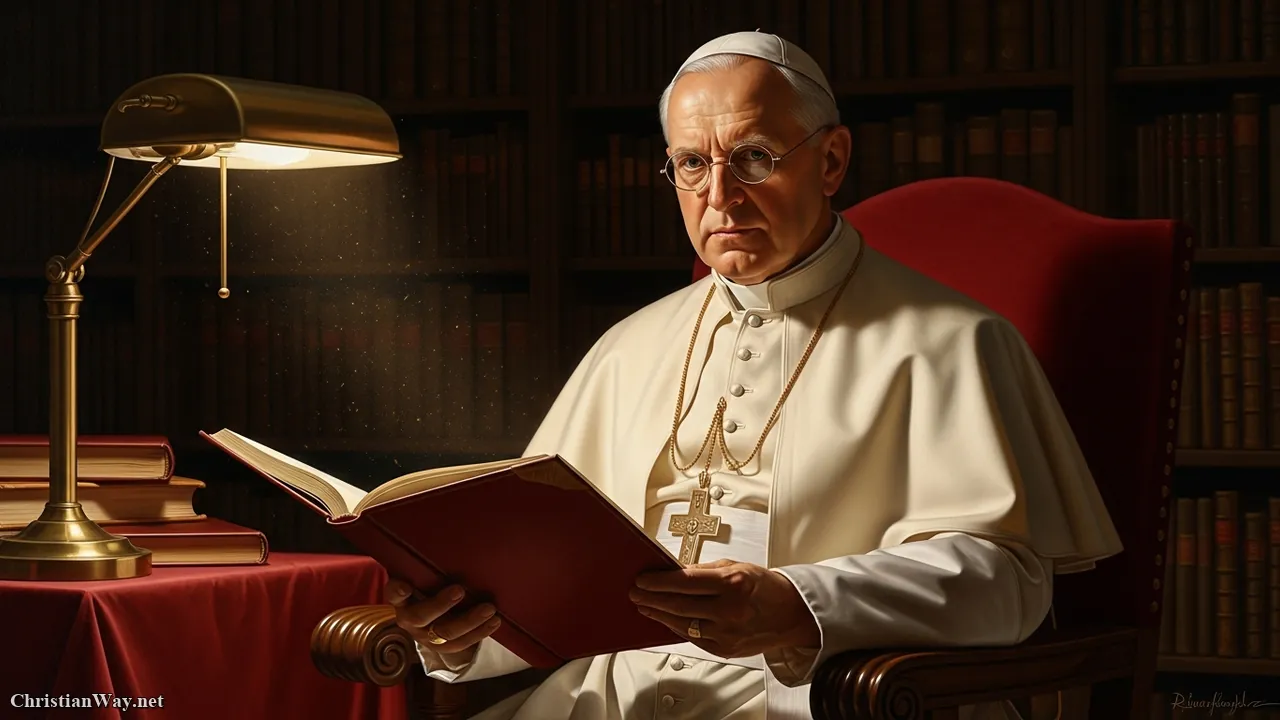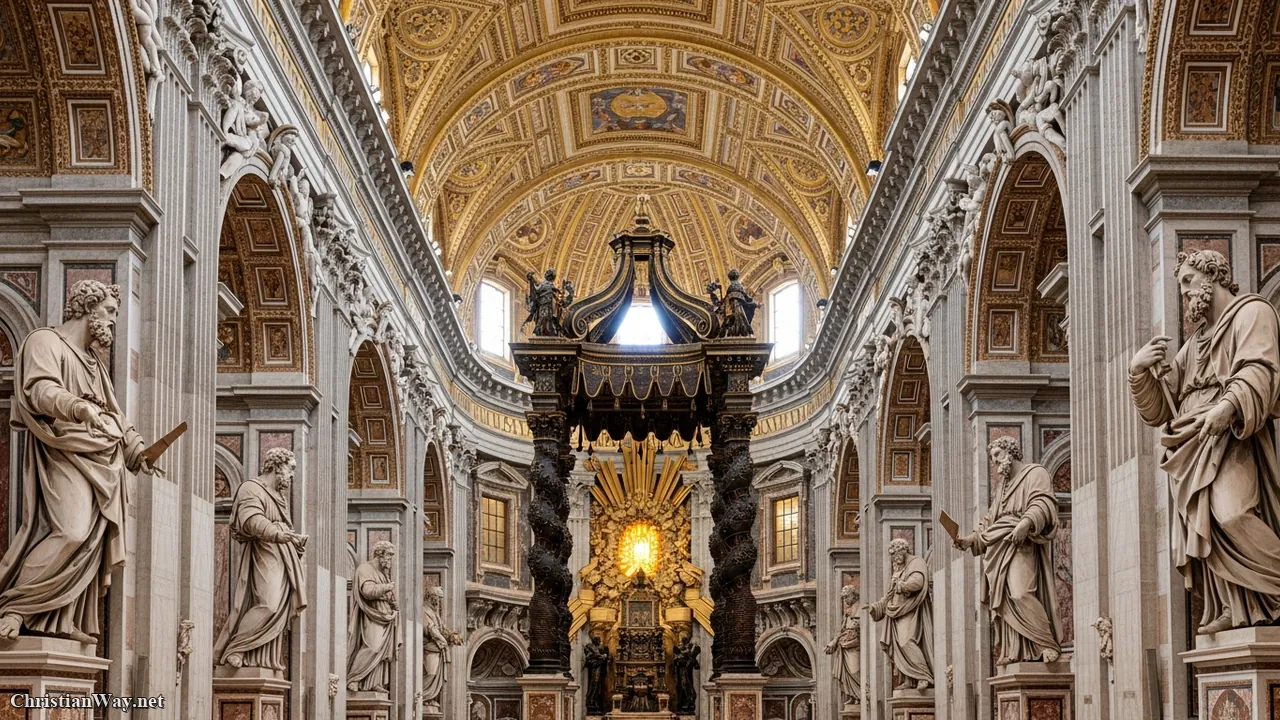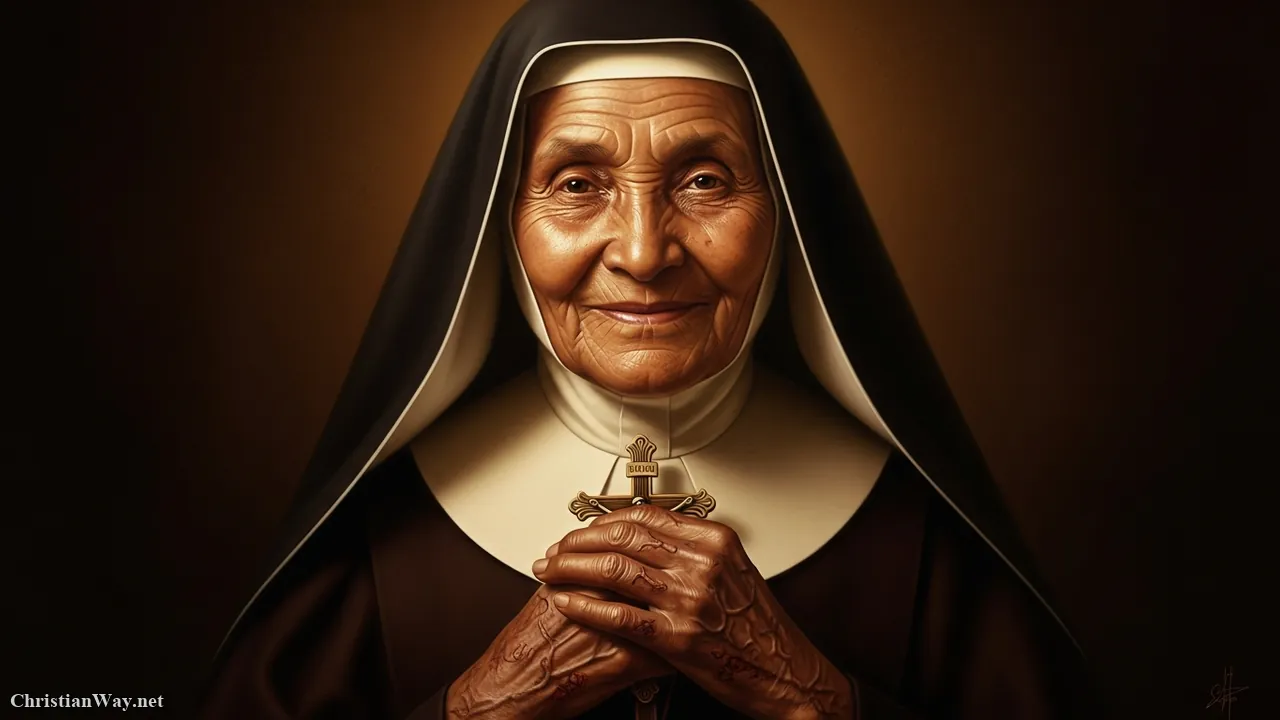Dear friends in Christ,
Every age of the Church has been blessed with men and women whose lives shine like stars against the darkness of the world. They are the saints — those who have loved God with all their heart, all their soul, and all their strength. To speak of the saints in Catholicism is not to look at distant, unreachable figures, but to gaze upon living witnesses of what grace can do in a human heart. They show us that holiness is not a dream but a destiny, not a privilege of the few but a call to all.
In a time when the world often celebrates power, success, and pleasure, the saints remind us that true joy is born from surrender, that the deepest fulfillment comes not from having but from giving, and that the meaning of life is found in love. Their stories are not relics of the past — they are living gospels written in flesh and blood, guiding us still toward Christ, the source of all holiness.

Let us, then, walk through this mystery of the saints — understanding who they are, how the Church honors them, and why their example continues to lead us toward the heart of God.
The Meaning of Sainthood
To be a saint, in the truest sense, is to belong entirely to God. The word saint comes from the Latin sanctus, meaning “holy.” In the early Church, this word referred to all the baptized, those who had been set apart for God through faith and the sacraments. St. Paul, in his letters, often addressed the Christian communities as “the saints,” because they were called to live in Christ’s holiness:
“To all the saints in Christ Jesus who are at Philippi, with the bishops and deacons” (Philippians 1:1).
Holiness, then, is not reserved for those canonized by the Church but is the vocation of every believer. As the Catechism of the Catholic Church teaches:
“All Christians in any state or walk of life are called to the fullness of Christian life and to the perfection of charity” (CCC 2013).
This means that every mother and father, every priest and worker, every student and elder — all are invited to become saints in their daily lives, through faith, love, and perseverance in grace.
The Canonized Saints: Witnesses of the Church
The Process of Canonization
Over time, the Church came to formally recognize certain men and women whose heroic virtue, fidelity to the Gospel, and miraculous intercession bore extraordinary witness to God’s power. This recognition, known as canonization, is a solemn declaration that a person now enjoys the vision of God in heaven and can be publicly venerated by the faithful.
The process begins at the local level, often many years after a person’s death. The Church investigates their life, writings, and virtues. If the evidence of holiness is strong, they are declared Venerable. When a miracle is attributed to their intercession, they may be beatified as Blessed, allowing for local devotion. A second miracle often leads to canonization — the official proclamation that this person is a Saint of the universal Church.
Yet this process, though careful and reverent, is not a human exaltation of the individual; it is an act of thanksgiving to God, who alone is holy. The saints do not glorify themselves — they glorify Christ in whom they lived and died.
The Communion of Saints
United in Christ
Catholicism professes the communion of saints — a profound spiritual bond between all who belong to Christ: the faithful on earth (the Church Militant), the souls in purgatory (the Church Suffering), and the blessed in heaven (the Church Triumphant).
This doctrine expresses that the Body of Christ transcends death. In Him, no love is lost, and no soul is forgotten. Those who have gone before us are not absent; they are alive in God and intercede for us in love. As the Letter to the Hebrews reminds us:
“Therefore, since we are surrounded by so great a cloud of witnesses, let us lay aside every weight… and run with perseverance the race that is set before us, looking to Jesus, the pioneer and perfecter of our faith” (Hebrews 12:1–2).
The saints are that “cloud of witnesses.” They cheer us on as we run the race of faith. They are not obstacles between us and God but companions who help us draw closer to Him.
The Intercession of the Saints
Why Catholics Ask for Their Prayers
One of the most misunderstood aspects of Catholic devotion is the practice of asking the saints to pray for us. Catholics do not worship the saints — worship belongs to God alone. We venerate the saints, which means we honor them as God’s friends and our spiritual brothers and sisters.
When Catholics pray to a saint, they are not treating them as divine but asking them to join their prayers to ours, much as we might ask a friend on earth to pray for us. The difference is that the saints now live in the full presence of God, where their prayers are pure and powerful.
As St. Dominic once said on his deathbed:
“Do not weep, for I shall be more useful to you after my death and shall help you then more effectively than during my life.”
The intercession of the saints reflects the unity of the Church in heaven and on earth — a love that is not broken by death but perfected in eternity.
The Saints as Models of Christian Life
Different Faces of Holiness
No two saints are the same, for God’s grace meets every human soul uniquely. Some were martyrs who shed their blood for Christ; others were scholars, mystics, mothers, fathers, and even former sinners who found redemption. Their diversity is the beauty of the Body of Christ.
- St. Francis of Assisi showed us the joy of simplicity and love for creation.
- St. Teresa of Ávila revealed the depths of contemplative prayer.
- St. Augustine, once lost in sin, became a teacher of grace.
- St. Thérèse of Lisieux, in her “Little Way,” taught that even the smallest act done with love has infinite value before God.
- St. John Paul II, with his tireless energy and deep spirituality, reminded the modern world that holiness is possible in every age.
Each of them mirrors a different aspect of Christ’s face — compassion, wisdom, courage, humility — and invites us to do the same.
The Saints and the Sacraments
Living in the Grace of the Church
The saints are not holy by their own strength; they are made holy through grace. Every sacrament of the Church — Baptism, Eucharist, Reconciliation, Confirmation, Marriage, Holy Orders, and the Anointing of the Sick — is a wellspring of sanctifying grace that can shape a saintly life.
They remind us that holiness is sacramental, not sentimental. It grows from real encounters with Christ in Word and Sacrament, where divine life is poured into human hearts.
In the Eucharist, especially, the communion of saints becomes visible: heaven and earth unite around one altar, one sacrifice, one Lamb. When we receive the Body of Christ, we are united not only with Him but with all His saints in glory.
The Saints and Our Daily Life
Holiness in the Ordinary
The saints remind us that holiness is not about extraordinary deeds but extraordinary love. God sanctifies the ordinary — the kitchen, the classroom, the workshop, the hospital — transforming daily life into a field of grace.
As St. Thérèse said:
“Holiness consists simply in doing God’s will, and being just what God wants us to be.”
To imitate the saints is not to copy their outward lives but to follow their inward spirit: humility, trust, and obedience to God’s will. A quiet act of forgiveness, a hidden prayer for another, a patient heart in suffering — these, too, are the seeds of sainthood.
The Saints as Signs of Hope
Holiness Is Possible
In a weary and divided world, the saints remind us that light is stronger than darkness. They are living proof that grace is not a theory but a reality that changes lives. Their existence tells us that the human heart can be healed, transformed, and made radiant with divine love.
Every canonized saint began as an ordinary sinner who allowed grace to do extraordinary things. Their lives say to us: “Do not be afraid of holiness. It will not take away your joy, but it will give it meaning.”
Holiness is not an escape from the world but its renewal. Through the saints, Christ continues to heal, teach, and bless humanity.
Reflect and Pray
Dear brothers and sisters, the saints are not distant figures but family — our brothers and sisters who have gone before us into the fullness of God’s love. Their lives remind us of who we are called to be: reflections of Christ’s light in the world.
May we walk in their footsteps, not by imitation alone but by sharing the same Spirit that made them holy. May we see in their lives not perfection unreachable, but grace attainable — grace offered to each of us through faith, prayer, and love.
Let us pray:
Lord Jesus Christ, You are the source of all holiness.
Through the prayers of Your saints, fill us with the courage to follow You with pure hearts.
Teach us to live with faith, hope, and love, that our lives, too, may bear witness to Your glory.
May we one day rejoice with all the saints in the eternal communion of Your Kingdom.
Amen.
May the peace of Christ dwell richly in your heart, and may His love guide every step you take toward Him.
— Fr. John Matthew, for Christian Way





